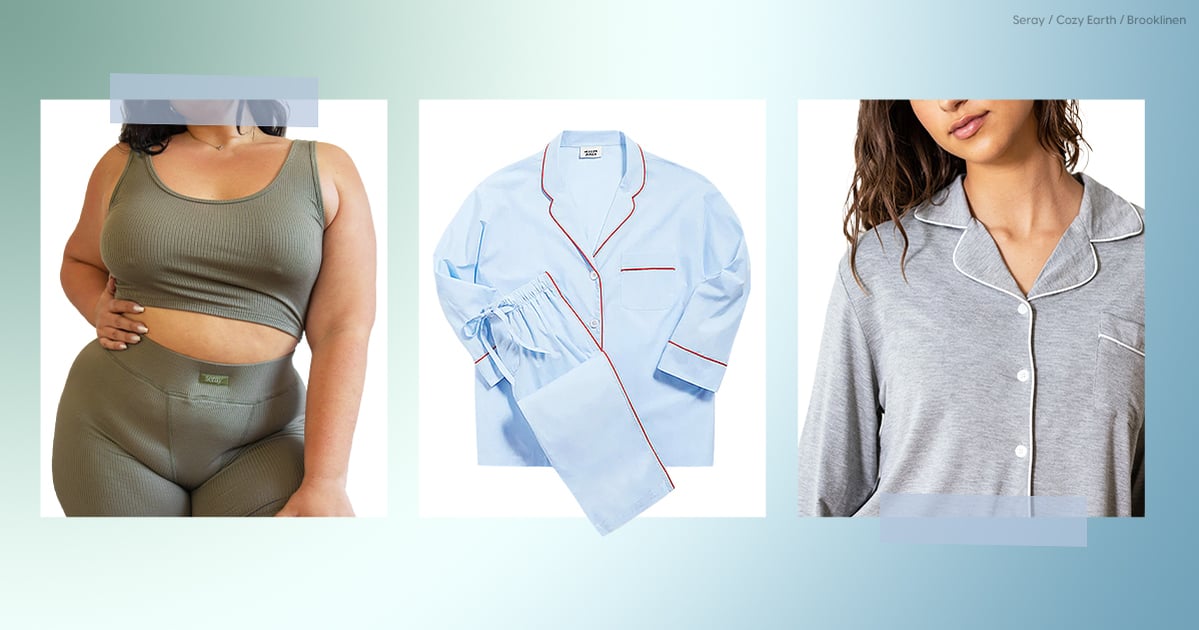Neurologists say we spend about a third of our lives sleeping (or trying to) . . . so why are our pajamas so bad? That threadbare T-shirt you’ve been wearing since high school or cute-but-scratchy set could be sabotaging your slumber – and the potential consequences are enough to keep you up at night. Sleep has been proven to have a major impact on nearly every aspect of your well-being – from your skin health to your stress levels – so choosing pajamas for the best sleep is a form of self-care. (And it may be even more comfortable than sleeping naked.)
Lauren Sudeyko, founder of Vancouver-based sleepwear brand Seray, knows the sleepwear struggle all too well. In 2020, she suffered a concussion in a cycling accident. Throughout her recovery – which included a lot of time in bed – she realized her pajamas were working against her. “I’d be waking up sweating in whatever I was wearing. And even as I started to recover, I would still be waking up really sweaty, really uncomfortable,” Sudeyko tells POPSUGAR. “We’ve all woken up before where you stick your foot out the duvet, or you rip the duvet off because you’re so hot.”
Fed up with all the restless nights, she finally took her iPhone flashlight to her care labels, pinpointing the PJ pest: polyester. “I was like, ‘Oh, polyester means plastic. OK, we’re sleeping in Saran Wrap over here.'” Synthetic materials like nylon, rayon, and, yep, polyester, tend to lack breathability and cause you to overheat and sweat at night. Sweat can be a trigger for skin conditions like eczema – and more itching can mean less time snoozing . . .
“OK, we’re sleeping in Saran Wrap over here.”
Behavioral sleep medicine expert Shelby Harris, PsyD, director of sleep health at Sleepopolis, agrees that your sleepwear’s fabric is key for a restful night. “Choosing the right sleepwear can help to improve sleep quality and overall well-being,” she says. “The best sleepwear for staying cool and comfortable at night is made from breathable, lightweight, and moisture-wicking fabrics.” Materials such as cotton, linen, Tencel, merino wool and bamboo fiber, she says, will protect your skin from irritation and help regulate your body temperature, important factors for a more restorative sleep.
Generally speaking, the body takes cues from the environment: as it starts to get dark, the brain releases the hormone melatonin (aka “the sleep hormone”) and your body’s core temperature begins to drop. Therefore, slipping into a pair of cooling pajamas not only helps keep you at a comfortable temperature all night long, it’s also an easy way to help the body understand it’s time to sleep.
When choosing pajamas for better sleep, Sudeyko says it’s important to read the label and product descriptions closely. Is that cute cotton set made with all natural fibers, or is it a polyester blend? The material percentages are usually listed right on the care tag, she says.
Based on her personal experience as well as product testing done while developing Seray, Sudeyko says it’s important to consider fit when shopping for quality sleepwear. It makes sense: too-tight clothes – or too-loose clothes that wrap you like a mummy while you toss and turn – can cause discomfort, irritation, and poor circulation. But Sudeyko thinks that the benefits of finding sleepwear you love are more than skin-deep.
“After doing all that research and realizing that women don’t feel good about what they’re wearing, they’re not investing in it, and they’re just wearing their oldest clothes, I was like, there’s an opportunity here to create something where women love what they wear,” Sudeyko says. “It’s not only just the fabric and the material and putting it on, it’s you transforming into a different version of yourself at the end of your day.”
Invest in yourself and read on to shop some of our favorite pajamas for better sleep.




